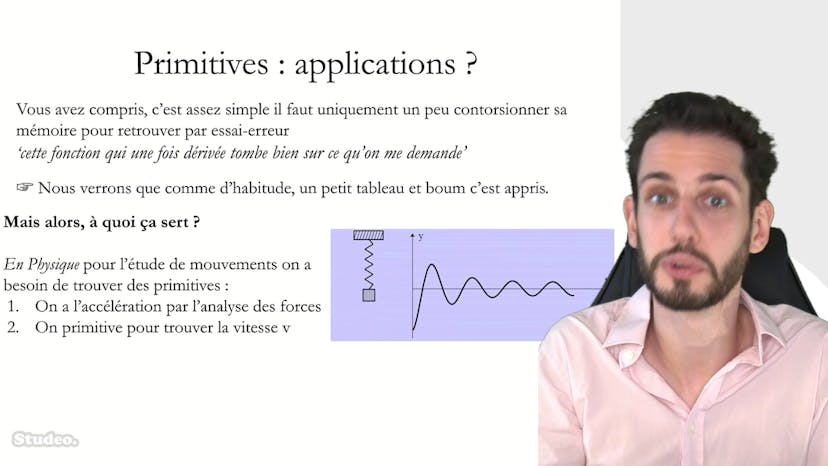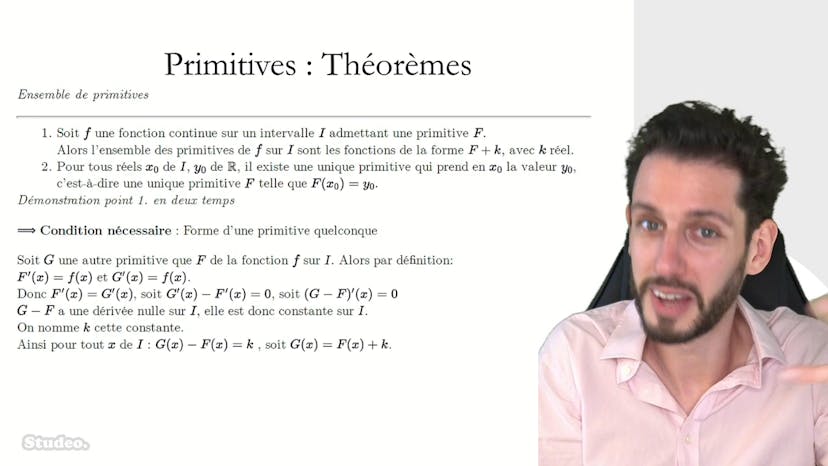 All subjects
All subjects
 All subjects
All subjects
Polynôme × exponentielle
This is a transcription of a video class discussing the concept of finding the primitive of a function. The speaker starts by explaining that when dealing with exponential functions, a common rule is that the primitive of a polynomial multiplied by an exponential function will likely be a polynomial of the same degree multiplied by the exponential function. They then provide an example using a second-degree polynomial to demonstrate this concept.
Next, they address the question of finding f'(-1), stating that f'(-1) is equal to f(-1) since f is defined as the primitive of f'. They move on to the next question, which asks to express f'(x) in terms of a and b. Using the derivative rule, they derive f'(x) as the product of e^x, a, and b.
Moving on to the third question, they are asked to demonstrate that the expression obtained in the previous question holds for all x in the set of real numbers. They explain that in order for the two polynomials to be equal, the coefficients in front of x^2, x, and the constant term must be the same. By identifying the coefficients and solving the corresponding equations, they find that a is equal to -1 and b is equal to 3.
Finally, they express f'(x) as -x + 3 - x^2 + 3x - 2x.





